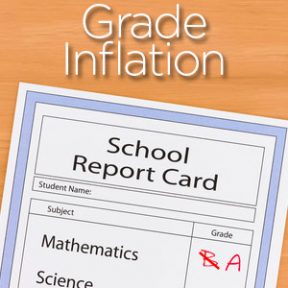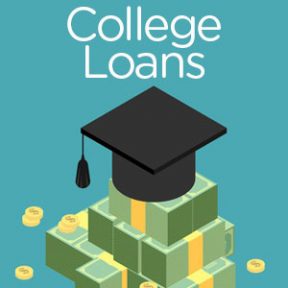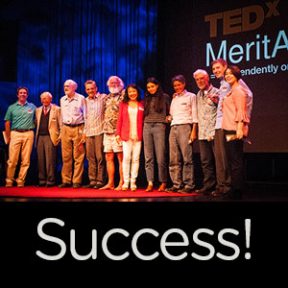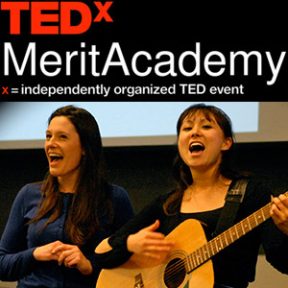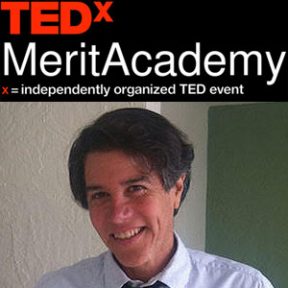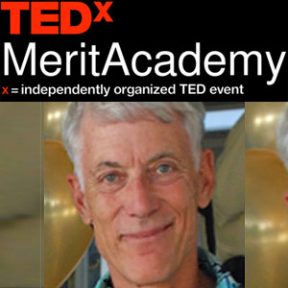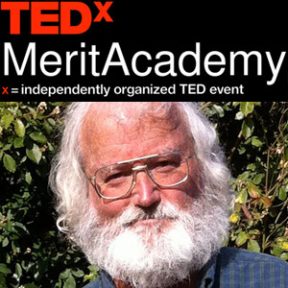Merit Blog
- Filter by
- Categories
- Tags
- Authors
- Show all
- All
- $1.35 Million fine
- 10%
- 126 mg/dL
- 2020
- 2021
- 2024
- 2030
- 2nd amendment
- 2nd wave
- 3-layered masks
- 3D shields
- 4 generations
- 4-year college plan
- 4-year college plans
- 4-year plans
- 5 easy tips to reduce wildfires
- 5% tuition hike
- 5th year
- 6 feet apart
- 6:00am to midnight
- 7-days
- 8-year medical degree
- A's for all
- AB104
- AB2147
- absentee ballot
- academic planner
- academic skills
- academics
- ACE
- ACEP
- ACT
- activists
- ACTs
- addiction
- admission decisions
- admissions
- admissions yield
- adolescent behavior
- advanced directive
- affirmative action
- affordable college options
- age 25
- aid
- Aidan Levan
- air pollution
- AK-15
- Alisha Bhatia
- alternative classes
- alternatives to gift giving
- American men
- analogy
- analytical writing placement exam
- Angie Richman
- animal to human transmission
- anna krawisc
- Anush Anand
- anxiety
- AP courses
- AP exams
- AP tests
- apple juice
- application update
- applications
- apply EA
- apply ED
- apply regular admission
- appreciation for service
- apprenticeships
- apricots
- April 23
- arbor day
- ARES
- Arul Mathur
- atomic bomb
- Aurchana Manicavasagan
- Aurchana Manickavasagan
- AWPE
- babies
- baccalaureate degrees
- back to school night
- badges
- baking christmas cookies
- baking stations
- baking with friends
- baking with kids
- ban on travel
- batteries
- bee killing
- beehives
- before and after
- best colleges
- Best of Rock 'n Roll
- Best of Rock 'n Roll: 1955-1975
- Beyond Van Gogh
- Big Ag
- big sticker tuition
- biography for grandchildren
- bistro table covers
- bistro tables
- black holes
- Black Lives Matter
- blackmail
- blocking time for tasks
- blocking time in GCal
- body image
- book by teen for teens
- boomers
- boundaries
- boy scouts
- Boys' Day
- budget
- budget cuts
- build academic skills
- build your own christmas tree
- building furniture
- built oak shelves
- bushmeat
- Busy Woman's Organizer
- buy from these companies
- buyinbulk
- buying first house
- CA
- cacao
- Cal
- Cal Fire
- CalFire
- Calif Mother of the Year
- California
- California American Mothers
- California college savings accounts
- California Fair Plan
- California law
- California Mother of the Year
- California new high school requirement
- California savings fund for 1-12 graders
- California State University
- calkids
- cannabis growers
- Carlon's Fire Protection
- carp
- cash
- catholic
- cellphones
- censoring curriculum
- Central Fire
- Central Fire Department
- Central Fire Dept
- CERT
- chainsaw demonstration
- changing eating styles on campus
- chaos
- chatgpt; AI; essay writing; college application essays; cheating; artificial intelligence; teaching; teaching tools
- cheating
- cheating on tests
- cherries
- chicago
- chicken coop
- chicks
- children's day
- chili sunflower seeds
- china
- chipping program
- chocolate is good for the heart
- choices
- choose college
- choose major
- choosing colleges
- choosing to stay near home
- christmas cookies
- Chrohn's Disease
- ciappino
- cigs
- circadian rhythm
- City College of San Francisco
- civil rights act of 1964
- clamshellplastic
- Class of 2013
- classes
- classrooms
- clear 5 feet around the house
- Clery Act
- climate
- climate change
- climate crisis
- closing campuses
- closure for family and friends
- cloth masks
- co2
- CO2 monitors
- coach salaries
- coalition for college
- cocoa
- coconut coir
- codered
- college
- college admission
- college admissions
- college admissions decisions
- college applications
- college athletics
- College Board
- college campus tours
- college campuses closing
- college credit for apprenticeships
- college decisions
- college degrees
- college dining halls
- college experience
- college grades
- college jobs
- college rankings
- college rejection
- college rejections
- college savings accounts
- college savings fund
- college spring break
- college students
- college students vote
- college tuition
- college wait lists
- college waiting lists
- college yields
- college-bound freshmen
- colleges cut health care budget
- colleges still accepting applications
- collegevoters
- combustible materials
- common application
- communication
- community college
- community college vs 4 year college
- community working together
- Company A
- completing suicide
- Congo
- contact tracing
- Cordyceps
- coronavirus
- coronavirus gap year
- coronavirus test kits
- corpus christi
- costumes
- countdown
- COVID
- covid-19
- COVID-19 rules
- COVID-19 vaccine record
- Crystal English
- CSU
- CSUs
- cultivating mushrooms
- curriculum
- cuts
- cutting trees
- cyberbullying
- dairyfree yogurt
- Daisy Payton
- Dance Designs
- Dancenter
- Danny Cortazzo
- David Dean
- David Reid
- david vasquez
- debt
- defensible space
- degree
- dehydrating fruit
- Dems
- den leader
- devid
- diabetes
- dictionary
- dim bulbs
- dinners for ER staff
- diploma
- disaster plan
- discrimination
- disenfranchised
- dishsoap
- diversified class
- diversity
- DIY
- DIY cherry picker
- diy laundry detergent
- doctor
- doctors
- doggie dressup
- Dollies
- don't cut a tree
- dorm life
- dorms
- double scholarships
- Dr Nicole D'Arcy
- Dr. Fauci
- Dr. Lin
- draft
- drive less
- drop out rate
- drought
- drought shaming
- droughts
- Ds vs C-
- dumb
- dystopian society
- early college
- earnings
- Earth Day
- eco friendly christmas
- eco gift wrap
- eco xmas tree
- eggs
- el paso
- Election
- elementary
- eliminate plastics
- elite college admissions
- ELWR
- emergency
- emergency rescue career
- EMT
- EMTs
- Enola Gay
- enrollment
- entitled Americans
- Entry Level Writing Requirement
- EO13950
- EOS
- equal education for all children
- equine evacuation
- equity gap
- ER doctor
- ER doctors
- Eric Swenson
- Eric Wei
- essay prompts
- ethnic studies
- ethnicity in college admissions
- ethnicstudies
- Evacuation Smarts
- event
- Exam Rabbit
- Executive Order
- Executive Order 9066
- exotic animals
- expanding enrollment
- expunge records
- F.A.C.E.
- FACE
- face shields
- FAFSA
- family
- family cleaning
- family heirlooom
- family legacy
- family reunion
- family traditions
- far west fungi
- Farm Bill
- favoritism
- feelin beautiful
- feeling appreciated
- female
- Ferrell's Donuts
- financial
- financial aid
- fire activate canister extinguisher
- Fire Defense Service
- fire extinguishers
- fire fighting
- fire hydrants
- fire inspections
- fire insurance
- fire mitigation
- fire preparedness
- fire prevention
- fire prevention education
- fire prevention tips
- fire protection
- fire solutions
- firefighters
- firefree
- firewise
- Firewise event agenda
- Firewise event speakers
- firewise USA
- first female doctor
- fish oil
- fixing
- flu shot
- folding paddleboard
- FOMO
- forming pandemic pod
- founding fathers
- fracking
- Frank Locatelli
- fraternities
- free child care
- free childcare
- free childcare in your home for free
- free money
- free tuition
- fresh peaches
- fresh raspberries
- fresh squeezed apple juice
- freshman experience
- freshmen
- frontline
- frontline workers
- fully functioning brains
- gap year
- gap year trend
- garlic
- gaslands
- gaslands 2
- GCal
- GE
- gen ed
- Gen XYZ
- Gen Y
- Gen Z
- gender fluid
- gender identities
- genderqueer
- genealogy
- generationz
- getoutthevote
- getting kids to spring clean
- gift bags
- gift giving
- global warming
- glove box
- glyphosate
- Go Bag
- go bags
- Google Calendar
- GovNewsomvetoesbill
- GPA
- grad regalia on dog
- grad requirements
- grad school humanities
- grade improvement options
- grade inflation
- grades
- grades vs pass/fail
- graduation rate
- graduation rates
- grammar
- grants
- grassroots
- great value
- Greek life
- Greek society
- gregory
- gregory gavin
- Grinnell
- growing almonds
- growing mushrooms
- growing my own herbs
- growing seedlings in a rain gutter
- growing walnuts
- gun violence
- guns
- guns on campus
- hair pieces
- halloween
- ham radio
- hand sanitizer
- hand sanitizers
- handmade gifts
- hands-on experience
- hangouts
- hannah
- hannah faris
- Harbor UCLA ER
- Harpin' Jonny and Clark
- Harvard
- harvesting fruit
- hate crimes
- hatred
- hazing
- healthcare workers
- heart attacks
- herbs
- high school
- high school graduation requirements
- high school seniors
- high school students
- higher enroll rate
- higher graduation rate
- Hiroshima
- historians
- history
- hoarding
- holiday gifts
- holiday preparation
- holistic view
- home
- Home Depot
- home fires
- home hardening
- homeless
- homemade masks
- homemade yogurt
- homeschool
- hope for college
- housewarming gifts
- how to host a socially distant lunch
- human rights
- IBC tanks
- IBD
- IBM
- immersive exhibit
- Impact Incubators
- in-person classes
- increased odds
- independent studies
- indoor ventilation
- industrial revolution
- inflammation of the heart
- inflation
- inflation causing tuition hikes
- inmate crews
- innovation
- inoculating millet grain
- insanity
- international
- internet
- internet gaming disorder
- internment
- internment camps
- internships
- interracial marriages
- interviews
- iphone
- Ishan Bhatia
- JACL
- jaclyn
- Jaclyn D'Arcy
- Japan
- Japanese Americans
- Japanese Americans incarcerated during WWII
- Japanese Children's Day
- joe
- joe jordan
- john deere
- John Gerhardt
- John Walbridge
- joint degree program
- journal entries
- Jr. Company
- June 20
- just for fun
- K-12 college savings accounts
- kawana family reunion
- Keith Trinity
- kellogg
- kenya
- Kianti's
- kickstarter
- Kiran Sunil
- Know your zone
- kombucha
- Laina Farhat-Holzman
- lamb haas avocados
- laundrydetergent
- law
- leaders
- leads for recycling
- learn at home
- learning
- learning hubs
- legacy
- legacy admissions
- legacy admissions; Varsity Blues Scandal; Leave Your Legacy
- letters of recommendation
- Liberty Lost Lessons in Loyalty
- Limb up trees
- limbing
- Live Oak CERT
- live on campus
- loans
- location
- logan
- logan conover
- Loki
- lost scholarship opportunities
- lovechocolate
- low-income families
- low-income students
- Lowe's
- M.B.A.
- mail ballots
- mail-in ballots
- Make America White Again?
- make your own
- malaysia
- male
- manu koenig
- march deadline
- Marco Mack
- Marianne's Ice Cream
- martin
- martin gaskell
- mas
- mas hashimoto
- masks
- matching signatures
- math scores dropped
- May 1st
- May 5th
- MBA
- meat alternatives
- medi-honey
- medical
- medical school
- medical supply chain emergency act
- Mehtaab Dhillon
- men vs women in college
- mental health
- Merit
- merit academy
- Merit Academy curriculum
- Merit Educational Consultants
- Merit Educational Consultants LLC
- Merit Planner
- Merit Summer Theater
- methane
- methanol hand sanitizers
- metrol
- mexico
- Michael Beck
- Michele Roush
- micro communities
- microgreens
- middle
- Mike DeMars
- millennials guide to free childcare in your home
- Mochi
- Monarch Dance
- money
- more documentation
- more women in college
- Mother of the Year
- Mother's Day
- multitasking
- MURS radio
- MURS radios
- mushroom pesticides
- mushroom spores
- mushrooms
- music
- muslim
- mycelium spawn
- N95
- N95 masks
- Nagasaki
- National Dance Day
- National Doctor's Day
- National Toyota Community Scholars
- National Women Physicians Day
- nationalteacherappreciationday
- natural gas
- necole
- nectarines
- need-based admissions
- Neha Surendar
- never again.
- new digital format
- new hope
- new law
- new normal
- new school year
- newborns college funds
- Newsom
- Nicholas Baldridge
- Nicholas Tran
- Nicole D'Arcy
- Nicole D'Arcy MD
- nicotine pouches
- Nishi Dharia
- NLP
- no artificial christmas trees
- No Limits
- no loans
- no more online classes
- no red meat
- no tuition
- no-more-tears
- nonbinary gender identification
- North Rodeo Gulch
- North Rodeo Gulch Firewise
- North Rodeo Gulch Firewise USAm
- northwestern
- not disclosing campus crimes
- Nov 7
- NRG firewise
- NRG Firewise event
- NRGfirewise
- NRGfirewise USA
- nuclear bomb
- nurse appreciation day
- oak cabinets
- oak grove
- obsession
- ocean kayak
- omega-3
- on campus
- on-campus classes
- oncampus classes
- one person can make a difference
- one-on-one accredited classes
- one-on-one classes
- online
- online cheating
- online classes
- online credentials
- online tests
- OR3
- organizational skills
- organizing
- organizing electronics
- origami paddler
- OSHA
- outdoor dining
- overpopulation
- pack leader
- Pam Pac'd
- pandemic
- pandemic halloween
- pandemic pod
- pandemic pods
- pandemic solutions
- Pandemic year
- pandemics
- paper towels
- pascal
- pascal costa
- pass/fail
- pass/no pass
- passing grades
- pathways to solutions
- Patriotic Education
- pay off
- pay teachers more
- Peace Memorial Park
- peach yogurt
- peaches
- penny wise pound foolish
- perfect storm
- persistency rate
- personal biography
- pesticides
- petshampoo
- Phil Irwin
- phone etiquette
- phone schedules
- phones
- phonics
- phonograms
- photo album
- photo organizing
- photo renaming
- plagues
- plant-based
- planting trees
- plastics leach toxic chemicals
- plums
- podcast
- poison oak
- popoverpop
- postponed
- postponing weddings
- PPE
- PPEs
- prefrontal cortex
- prejudice
- prepring for finals
- preschool
- prescribed burns
- prescription medications
- Presidential Advisory 1776 Commission
- prevent wildfires
- prices
- priests
- private school
- project
- project merit
- projectmerit
- projects
- proof of immunization
- propaganda
- propagating mushrooms
- protection against COVID
- protects against air pollution
- protects brains
- protocols
- protocols for pandemic
- public v private
- quarantine
- quarantine on campus
- questions for teachers
- race
- racism
- Racism and America's Concentration Camps
- radios
- rain gutter
- rain gutter trough
- rainforests
- rainwater
- rainy day project
- rankings
- raspberries
- rats overcrowded
- RCD
- reading
- reading scores dropped
- reading wars
- real heros
- record breaking application numbers
- recruiting teachers
- recycler
- recycling
- reduced tuition
- reducing wildfire risks
- redwood deck
- refinishing cabinets
- refreshing summer drink
- register to vote
- rehabilitation works
- reinvent
- reinvent yourself
- rejection
- rejectRoundup
- relocation camps
- remedial college classes
- repeat a grade
- report cards
- requirements
- Resource Conservation District
- Response Recovery Resilience
- restructuring spring break
- return on investment
- reusable gift wrap
- reusable wipes
- reuse gift tags
- reuse xmas cards
- reusing
- reverse 911
- rice krispy treat witch
- Rio Theatre
- riveropolis
- Rod Caborn
- rod for bistro table covers
- ROI
- ROI for college
- ROI for part time workers
- ROI grad school
- role models
- roosting area
- Rory Kennedy
- rosemary
- Royal Taj
- run on paper towels
- sacrifice a little
- safe distance
- safe gatherings
- safer building solutions
- safety
- safety zones
- samarai
- San Francisco State Univ
- San Joaquin Valley
- San Jose
- sanitizer
- sanitizers
- sanitizing wipes
- Santa Cruz
- Santa Cruz County Sheriff
- Santa Cruz Equine Evacuation
- sat
- SAT 2
- SAT essays
- SAT subject tests
- SAT/ACT
- sat2
- satin gift wrap
- SATs
- save money
- save your house from fires
- saving colleges
- saving trees
- say no to vinyl
- SC County Sheriff
- scandal
- scholarship
- scholarships
- school
- school budget cuts
- school safety
- science
- scouts
- scratching area
- screens
- SCVMC
- Sean Gomez
- Sean Murphy
- selective service
- self-esteem
- selfreliance
- sexual assault
- sexual identity
- sexual predators
- SFSU
- shark attack
- shelter in place
- shields
- shiitake mushrooms
- shopping list
- should i wear a mask?
- signatures
- silk flowers
- silver lining
- singleuse plastic
- singleuseplastics
- SIP
- SIP projects
- skype
- slang
- slang dictionary
- slashing tuition
- sleep deprivation
- sleep routine
- smartphones
- smoke alarm
- smoke detector
- smoking
- SMS
- sneaky
- social distancing
- social graduation
- social isolation
- social justice
- solutions to cheating
- sophomores on campus
- Soquel
- sororities
- Spanish Flu
- speakers
- spicy peppers
- sports
- sports vs academics
- spring break
- spring break 2021
- spring cleaning
- standardized tests
- Stanford Dollies
- Stanford Medical School
- State Farm
- stay home
- stay safe
- stay-at-home
- stereotypes
- stevia
- stigmas
- Stokes Signs
- stop blaming others
- stop eating meat and dairy
- stop gift giving
- stop hating
- stop the surge
- stop whining
- stopusingplastic
- storm
- student athletes
- student learning
- student sewage
- student stress
- students
- students coming home for holidays
- study skills
- subject test
- success begets success
- success in school
- sugarfree yogurt
- suicide
- summer reading lists
- Supervisor Manu Koenig
- supplementary programs
- supply chain
- support companies
- support your teachers
- surgical masks
- Susan Tatsui-D'Arcy
- sustainability
- swing flu
- TAG
- takeoutcontainers
- teacher appreciation week
- teacher qualifications
- teacher shortage
- teachers
- teaching
- teaching reading
- team work
- teamwork
- tedx
- TEDx COUNTDOWN
- TEDx speakers
- TEDx talk
- TEDxCountdownm
- tedxmeritacademy
- TEDxMeritAcademy.com
- TEDxYouth
- teen angst
- teen solutions
- teens
- telecommute
- test
- test blind
- tests
- texas
- thank you
- thankateacher
- Thanksgiving
- Thanksgiving safety
- The Eco Xmas Tree
- The Farm Bakery
- thistles
- tim
- tim niemier
- time management
- tips from the experts
- tips on avoiding stereotypes
- tips on college personal statements
- tips on writing college application essays
- Tony Akin
- tour
- toxic hand sanitizers
- transcripts
- transfer
- transfer agreement guarantee
- transfer student
- transfer students
- transfers
- transgender rights
- trauma
- trending lower
- trick or treat treasure hunt
- trump
- tuition
- tuition hikes
- tuition increase
- tutoring
- twins
- uc
- UC admit days
- UC announce admissions decisions
- UC applications
- UC Berkeley
- UC Merced
- UC next steps
- UC Schools
- UCLA
- UCOP
- UCs
- UCs banned ACT
- UCs banned SAT
- UCs require flu shots
- UCSB
- UCSC
- UCSC on campus
- UCSD
- UCSF EMS Fellowship
- UCSF Fresno
- university
- University of California
- University of California incoming class requirements
- unqualified students accepted
- update
- upper-decky lip pillow
- urban forestry
- Urban Styles
- USC
- use cloth towels
- uvalde
- vaccines
- vacuum sealing fruit
- Valentine'sDay
- Valley Medical Center
- Valley Medical Center ER
- Valley Medical Foundation
- Van Gogh
- vapes
- vaping
- vegan
- video
- video games
- vinyl gutters
- virtual classes
- virtual family reunion
- virtual spring 2021
- virus
- virus origins
- VMC
- vote
- vote by mail
- vote early
- vote this november
- vulcan vents
- wall
- waste
- water
- water capture systems
- water catchment system
- water collection
- water filters
- water nipples
- water shortages
- water thieves
- watering fruit trees with reclaimed water
- WDS
- we need teachers
- wear a mask
- wearing masks
- weeding
- weedwhacking
- weekly menu
- what to do after filing FAFSA
- when not if
- whennotif
- whole language
- Wildfire Defense Services
- wildfire mitigation
- wildfire mitigation efforts
- wildfire prevention plan
- Wildland Fire Hazard Specialist
- wildland fires
- windy city
- wine
- working together
- WWII
- Yale
- yields
- zoom
- zyn
- Zynfluencers
It can help with college scholarships and admissions. Here’s how:
Everyone thinks the PSAT is just a preliminary “SAT” that colleges don’t see, and subsequently, they neither prep for it nor take it seriously. BIG MISTAKE! The PSAT is actually also the NMSQT, National Merit Scholarship Qualifying Test, which is the only way you can qualify to be a National Merit Scholar. Out of the 1.5 million students who take the PSAT each year, 34,000 students are commended and 16,000 become semifinalists. Of these 16,000 semifinalists, 15,000 go on to become Merit Scholars. These scholars win $2,500 scholarships or corporate/college scholarship awards. And this is just for taking the PSAT! Easy peasy.
Being recognized as a recipient of the Merit Scholarship Award is highly regarded by college admissions committees. When my daughter Nicole won this award, she received a full-scholarship offering from colleges that she didn’t even apply to! Colleges get ahold of these Merit Scholars and actively pursue them as they recruit students each year.
My recommendation: Take PSAT practice tests so you become familiar with the test process. Work on improving your scores by completing each section within the given time allotment. Review math concepts that you may have forgotten over the summer. READ, READ, READ. The best way to improve the tricky reading comprehension and grammar sections is to simply read every day.
You can start taking the PSAT in 9th grade. Your “real” PSAT score is calculated in 11th grade, so by starting early, you get 2 chances to prepare. Just think — this is probably one of the easiest scholarships to apply for — No essays! No interviews!. And if you score in the top 4%, colleges will be knocking on your door!
…and how it will affect your child’s college admissions is alarming.
We all hear about grade inflation – when teachers give A’s to average students – and we look the other way, especially when our kids benefit from them, right? I’ve heard about teachers giving students a full-letter grade bump just for showing up to take the standardized tests at school each year. Others give students 10 points for bringing in snacks or class supplies. What’s worst of all are teachers who offer so much extra credit that students don’t do their work or study for tests because they know that one way or another, they can pull their terrible grades up to A’s by the end of the semester. None of this builds character or prepares students for college.
Grade inflation hurts the students.
Yup! Because so many schools are inflating grades – especially in white, affluent schools—colleges can’t rely on grade point averages (GPAs) to assess whether or not the students will be successful in their colleges. So when colleges can’t rely on the students’ grades, they revert to the SATs and ACTs. After all, college-bound students take the exact same test in a proctored classroom on the same day across the country. If we’re comparing apples to apples, this may seem more reliable than GPAs.
But SATs and ACTs don’t determine which students will be our next Bill Gates or Steve Jobs. Testing reading comprehension, grammar, math and science skills in a timed, multiple-choice format does not weed out students who would do poorly in college. Instead, students who do well on standardized tests today are those who can afford private SAT/ACT tutoring and spend years preparing for these tests.
Both the inflated GPA at wealthy white schools and high SAT/ACT scores due to expensive prep programs give these affluent students an unfair advantage. They aren’t better equipped to succeed in college; they’re simply able to afford to attend schools that give away A’s and spend many hours under the expensive supervision of SAT/ACT coaches.
The good news is that college admissions officers receive school profiles that list GPAs and demographics so they know which schools inflate grades. And colleges that require personal statements, essays, letters of recommendation and interviews use an eclectic approach to selecting their incoming classes. When a student stands out because they’ve done a project or something remarkable, colleges notice.
[Source]
So you got your kid into college – and it’s a great college – and the financial reality smacks you in the head when you get your first college bill. Yikes! Unless you have the funds to pay for your child’s college safely tucked away under your mattress, you’re going to need money fast.
Be careful when looking at loans. They’re not all the same and the rules have changed. Check out many options before signing any contracts. I read this great article in Money Magazine (August 2017).
Federal Plus Loans (fixed APR: 8%)
Plus loans are the easiest to get – even with bad credit (except bankruptcy). Be careful how much you actually borrow because it’s easy to take more than you really need and then set yourself up for difficulty in repaying the loan later.
Private Loans (fixed APR: starting at 5.4% and up)
Private loan lenders seek clients with good credit history. So if you have excellent credit, you’ll probably get a great deal at a low APR. But if your credit is less than stellar, you may end up paying upwards of 12%! Yikes!
Home Equity (fixed APR: starting at 5.4% and up)
By using your home (that you own) as collateral, you can qualify for good loans at low APR. But, be careful of hidden costs – make sure your quotes include all costs such as appraisal fees. Because your home is probably one of your biggest investments, make sure you have enough funds to cover your retirement, kids’ weddings, and other expenses in the future.
Remember, education loans are almost impossible to escape – even in bankruptcy – so only borrow what you actually need.
As a college advisor, I wonder why selective colleges like Princeton, Harvard, Yale and Stanford keep “trade secrets” about how they choose their freshmen class each year. Students and parents strive to see the formula that colleges use to determine who gets in and who doesn’t.
In the book, The Chosen: The Hidden History of Admission and Exclusion at Harvard, Yale, and Princeton? author Jerome Karabel exposed how the Ivy League was more interested in sustaining aristocracy than shaping young minds. They routinely rejected women, Jews, blacks, and others, and they even changed admissions criteria so their legacy and elite students would get in before the super bright Jews and Asians.
Sadly, it’s still going on today. Princeton just filed a “reverse Freedom of Information Act” lawsuit against the Dept. of Education and the Office of Civil Rights to prevent their “trade secrets” on admissions decisions from becoming public information. Hmm. I wonder what they’re hiding?
Every year, I see amazing students get passed up by legacy students (students whose parents attended the same colleges and donated lots of money) with substandard grades, average SAT/ACT scores, and no projects. If colleges were transparent about admissions decisions, I believe that more students would be admitted based on merit and not family name, wealth, and ethnicity.
[Source]
Our TEDxMeritAcademy debut at the Rio Theatre was a huge success!
With 9 dynamic speakers, 1 music video, and 2 TED pre-recorded speakers, we introduced innovative solutions to climate change, overpopulation, and plastic up-cycling, as well as exploring black holes in the universe and contemplating racism in America.
We’ll post our TEDx videos soon to share these ideas worth spreading!

To offer both comic relief and valuable medical advice, Nicole D’Arcy and Anna Krawisc – along with the Stanford Video Department – perform a music video.
Come see this today, Monday, August 14th at 7:00 pm at the Rio Theatre in Santa Cruz. Get your tickets at TEDxMeritAcademy.com or at the door.
Thrilled that we are hosting a TEDx event at the Rio Theatre in Santa Cruz! Join us on Aug 14, 2017 at 7 pm. Get your tickets for TEDxMeritAcademy at wwwtedxmeritacademy.com. Meet David Vasquez, one of our speakers!
“What if there actually IS an energy ‘magic bullet’?”
David Vasquez is going to challenge the cliched notion in the energy world that “there are no ‘magic bullets’. There’s a breakthrough energy technology from an engineer-scientist-inventor in Arizona named Roy McAlister. He’s developed a new liquid fuel for both motor vehicles and power plants called METROL that is typically made from garbage and sewage and is not only clean, safe, affordable, unlimited in supply, and 100% clean, but actually cleans the air around it. The implications for both climate change, environment, and world economic prosperity in general are profound.
About David Vasquez:
David Vasquez is a college instructor, book author, computer-graphic specialist, and filmmaker who is focused on renewable energy and sustainable urban design. He has a doctorate degree mixing cognitive science with science education and he wrote a book about next-generation solar-hydrogen railway-systiems. His professional role has been as VISUALIZER of outside-the-box environmental solutions. He uses this craft both (a) as an independent consultant to public planning agencies in the SF Bay Area, and (b) to educate graduate students in a Landscape Design Dept. (Academy of Art University, SF) about how to create emotionally-engaging promotional images of proposed public projects.
Thrilled that we are hosting a TEDx event at the Rio Theatre in Santa Cruz! Join us on Aug 14, 2017 at 7 pm. Get your tickets for TEDxMeritAcademy at wwwtedxmeritacademy.com. Meet Pascal Costa, one of our speakers!
“How to stop overpopulation before we reach 10 billion people on Earth”
Overpopulation is a huge problem. We have too many people, and because of our immense growth experienced in the last century, we are experiencing new problems. Because of overpopulation, we have recklessly produced dirty energy and destroyed fertile land to meet the needs of our ever-expanding population. Forests have been decimated in order to make room for farmland and to produce lumber. We have exploited natural resources such as soil, water minerals, oil, and coal because we have grown dependent on them. As a result of our growing numbers and exploitation of natural resources, we have caused the extinction of 130 mammal species, and have endangered 250 species. Today, about 1000 species are now threatened. Through overpopulation, we have increased pollution, consumption, and the deterioration of land. There’s a simple way to reduce the world’s population and I’ll share my idea with you.
About Pascal Costa:
Pascal Costa founded Preventing OverPopulation, a non-profit organization that educates child-bearing people about how their decisions to have children directly affect the world. She has presented her project at the Earth Day Santa Cruz festival and she was interviewed on Earth Watch Radio. Pascal recently graduated from high school and plans to continue to advocate for population control in college.
Thrilled that we are hosting a TEDx event at the Rio Theatre in Santa Cruz! Join us on Aug 14, 2017 at 7 pm. Get your tickets for TEDxMeritAcademy at wwwtedxmeritacademy.com. Meet Tim Niemier, one of our speakers!
“How can we stop the flow of plastic pollution into our oceans?”
We need healthy oceans, but we can’t give up our plastic. Maybe there’s a way that we can have healthy oceans and still use plastic. If we create value for recycled plastic as a new resource, we can prevent it from harming our life-sustaining oceans. Tim will discuss a clever way of combining great worldwide designs with an inexpensive local recycling process that can stop the flow of plastics into our oceans.
About Tim Niemier:
Tim’s goal in life is to put “A billion butts in boats in healthy water.” He is the founder and designer/entrepreneur who introduced the sit-on- top Ocean Kayak to the world. These kayaks revolutionized all paddle sports because it made kayaking water-friendly. Bringing millions of people into the water makes them appreciate the delicate balance of our eco systems. Tim was 100% responsible for all post-consumer waste and pioneered product stewardship in the water-sport industry and other endeavors. He also continues to lead many environmental organizations with creative and sustainable innovations. Tim enjoys finding solutions to cleaning the ocean using resource management and recycling.
Thrilled that we are hosting a TEDx event at the Rio Theatre in Santa Cruz! Join us on Aug 14, 2017 at 7 pm. Get your tickets for TEDxMeritAcademy at wwwtedxmeritacademy.com. Meet Joe Jordan, one of our speakers!
“The Sky’s the Limit: Pathways to SOLUTIONS”
The gigantic numbers making up humanity, face huge problems like never before. Solving our way out of this mess will require revolutions in both technical prowess and in morality, fairness and compassion with which we treat one another. It is time for the “sleeping giant” of the MANY, to wake up, take heart, and lead. Here we highlight promising actions that we all can DO to save some semblance of a caring civilization and a hospitable natural environment. “Magic communications”, re-inventing the media from the ground up, can enhance awareness & intelligence as our species grows some wisdom.
About Joe Jordan:
Joe Jordan did atmospheric and space research at NASA/Ames and the SETI Institute (Mountain View) for decades, studying the two largely unrelated problems of stratospheric ozone depletion and tropospheric climate change. Since then he’s been working on solutions, involving education and training (for a new “green workforce”, etc.), and media outreach. He has long been on the Board of Directors of Ecology Action of Santa Cruz, and was the key driver steering that organization toward its present multi-million-dollar enterprise of promoting and implementing energy and water efficiency throughout California. He initiated the large installations of solar-electric (“PV”) systems on several of the Santa Cruz City Schools, as well as the very first PV systems ever to be located on public buildings in that town. Joe is currently co-hosting a new radio-show/podcast-series/social-media-enterprise called “Planet Watch” on KSCO.


